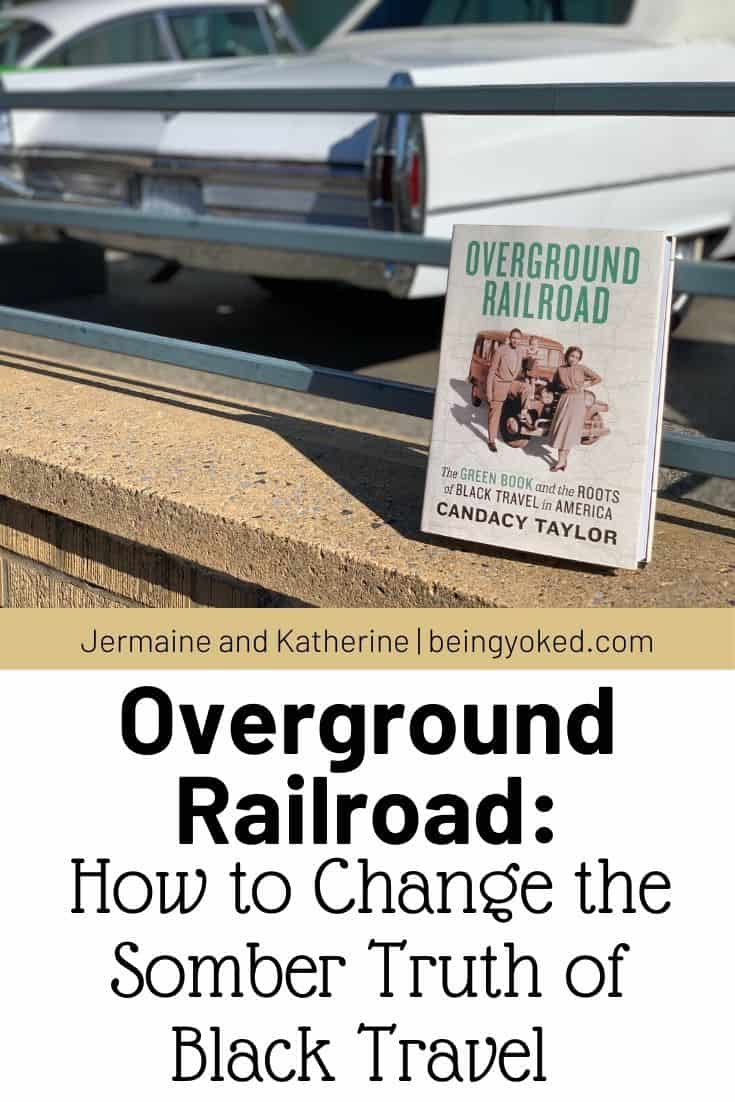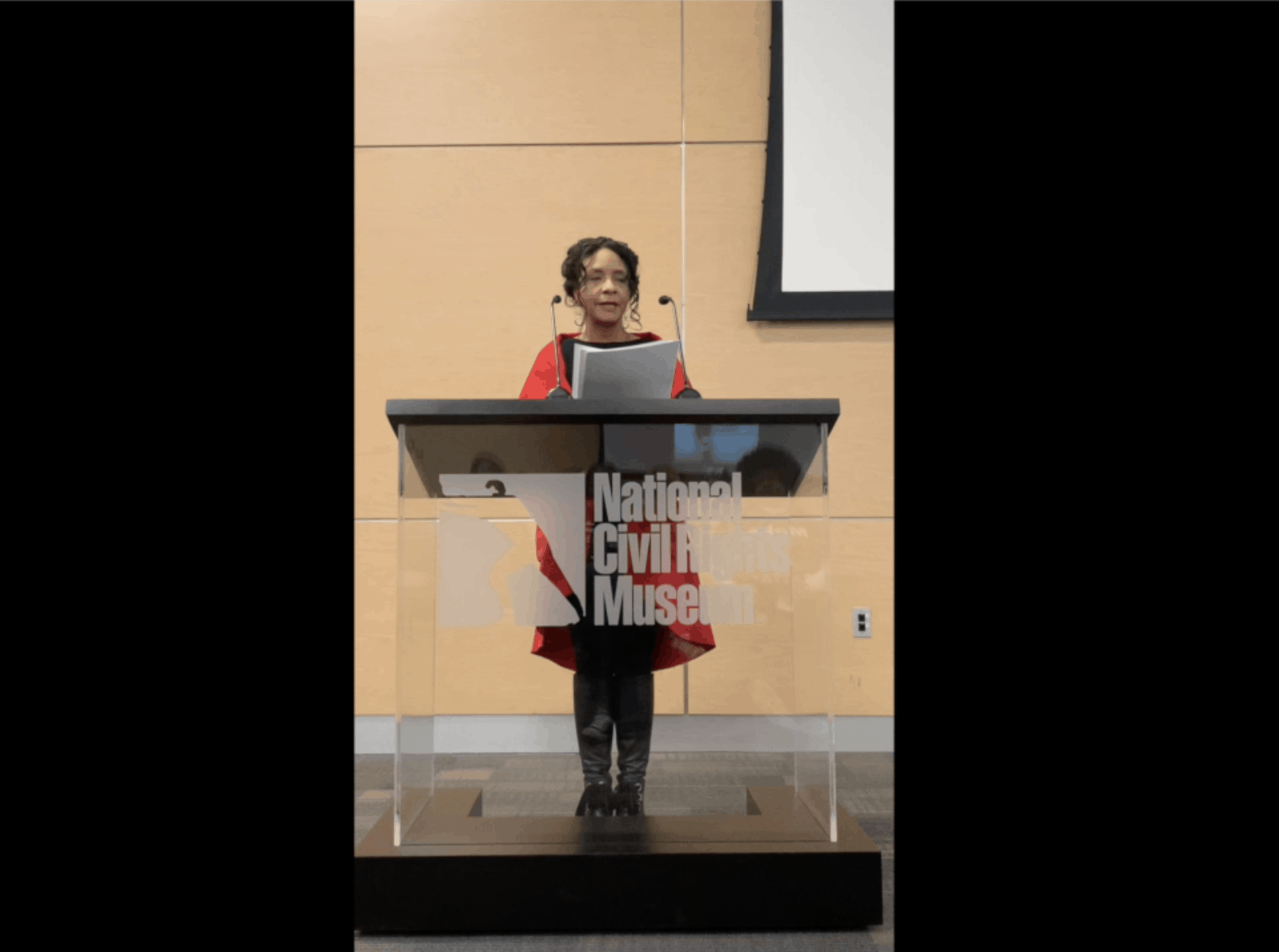One of the things that we absolutely love to do together is travel. Our first vacation together was to the Bahamas. We spent 2 weeks together on an island where we were the only people the other person knew. It was more than a getaway. For us, it was our opportunity to see how we travel together and test our compatibility. There was certainly something to be said about traveling to a country where the people looked like us. I’m not big on playing the race card in any event, but I’m fully aware that it matters and it’s a reality that Black Americans have to deal with. And if we want the world to look more like Christ in all things, we have to figure out how to change the somber truth of Black travel.
Don’t let the sun set
The first thing that I think about is how in Genesis 1, God instructed the first people in the Garden that all things were created for their good and that they were given dominion over the earth. All of the majesty that He created was meant to be enjoyed by His creation.
Then I remember the first time that I learned about a sundown town. My first encounter with such a place was when I was in middle school. We had moved back to the US from living overseas. Dad wanted us to visit our friends from when we lived in Meridian, MS. They had since relocated to Tazewell, TN, just north of Knoxville, TN. We spent the day at their house, catching up and just being kids. I remember vividly that around 4:30 PM, my dad rushed us into the car and said we needed to go. Memories of how fast he drove and how silent it was in the car. Not understanding why we couldn’t stay longer.
Years later, as an adult, I reconnected with the son of that family while working in Knoxville, TN and asked to see him and his wife. I told him that I would come up after work and have dinner with them. He said that wasn’t necessary and that they would drive down to meet me.
Catching up over dinner, he simply informed me, “We had to come to you because it’s not safe for you in my town.”
the reality of traveling while black
That dinner put everything into perspective for me.
I understood why my dad raced away from their home so many years before.
Why I couldn’t travel north of Knoxville after dark.
The world reminded me that, because of the color of my skin, being in certain places literally meant endangering my life.
As someone who grew up a child of the nomadic military life, engaging with people who looked nothing like me, being unwelcome was a foreign concept to me. Having that feeling of isolation in my own country made it worse. I was not allowed to freely exist in the place that I called home.
The Overground Railroad is Real
As we are on our journey to discover our ancestry, we know that travel is going to be an integral part of that. I had the pleasure of attending a lecture by Candacy Taylor at the National Civil Rights Museum. Her book, The Overground Railroad: The Green Book and the Roots of Black Travel in America is “the first book to explore the historical role and residual impact of the Green Book, a travel guide for black motorists.”
Consider it a privilege if you never had to use the Green Book. Even in 2020, I wish that we had an updated version of the book; when I covered the Freedom Awards, I was able to speak with Terri Lee Freeman, President of the National Civil Rights Museum and she made a great point about what that would look like today. It’s sad to say, that as a whole, it’s not as safe for us to travel as Black Americans as it should be this long after slavery and the passing of the Civil Rights Act in 1963. As the travel industry is fueled by over $55B of Black dollars, it is astounding that the racism in our country is so palpable that we are still unwelcome.
I didn’t know that I was on the overground railroad
Listening to Candacy Taylor speak about her experience in traversing The Overground Railroad, it reminded me of the times that we traveled as youths; how, even today, there are towns where we know it’s not the safest for us to stop for gas. Ms. Taylor read from her manuscript and talked about how parents during the 40s-60s would pack huge meals to travel.
When I was a kid, we loved to go on the road because we would have sandwiches and all sorts of snacks in the car. We traveled from the middle of MS to rural eastern TN to visit our grandparents. I understand now, as an adult, that raveling that route could be perilous for us.
The fact that my dad was in the military and these trips happened during the late 80s mattered little.
Just in case, my mom diligently packed our meals so that we wouldn’t have to stop. We got to have bathroom breaks but we never lingered…
Will we always need the Overground Railroad?
Several years ago, we took some teenagers from our congregation on an overnight trip to the Mosaic Templars Cultural Center in Little Rock, AR. It’s not as well known as the National Civil Rights Museum but it’s just as important. There is a wealth of history about how the fight for civil rights looked in another part of the country. It was on this trip that our teenagers first learned of a sundown town.
As there is a huge #BlackTravelMovement, we are finding the courage and wanderlust to see more of the world. We send our children out into the world to learn and grow; they’re not always prepared for what they might encounter.
I had the opportunity to ask Ms. Taylor what we could do to best serve our children. I acknowledged the fact that often the first time our children experience racism is through a traumatic event; I wanted her to share her guidance on what we should do to prepare and protect our children.
Ms. Taylor responds
“I think the problem that lies within trying to explain racism and where we’re at is the belief system that somehow…we’ve done this, that we’ve solved this incredibly vicious challenge to have this melting pot…Equality has not been achieved. You can say all kinds of things, but that’s not the reality… So I think growing up believing that it has been…that’s what’s hard… Whitewashing over it or trying to downplay it is just a disservice to the truth because when you walk in the world believing one thing that’s just not…I think it’s a setup for disappointment and confusion. I think that we need to have our kids motivated to look out for this and know what it is. Because if you can identify it, then at least you can try to change it or at least understand it better… It’s a really important time in your life when you’re trying to figure out who you are and how you’re being treated and how you treat other people. And I think understanding this history is an important first step to being whatever it means to be American.”
How we can change the somber truth of Black travel
I don’t think that racism will be eliminated in our lifetime nor in the lifetime of our children. But what we do in the meantime matters. Here’s what you can do as a Black traveler:
- Be aware of your surroundings and the cities you travel through. We shouldn’t have to worry about things like that in the 21st century but it’s our reality. It’s not the same as the Green Book but this website will tell you the list of sundown towns in each state.
- Research your route. Know where gas stations and hospitals are along your route. Make sure that you keep a full tank of gas.
- Have a travel accountability partner. Be sure that someone knows where you are at all times. Check in with a family member when you leave for one destination and head to the next. Provide them with all of the hotel information where you’re staying.
- Enjoy life! The biggest thing that we have to take from life is that we were not given a spirit of fear (2 Timothy 1:7) but even in our boldness, we have to be wise about our decisions (Ephesians 5:15.)
Be sure to pin this!

If you liked this article, you may also enjoy:
5 Activities to Connect to Your African Ancestry in Memphis
3 Things You’ll Learn When You Travel with Intention
4 Questions Answered through Solo Travel as You Prepare for Marriage


Leave a Reply